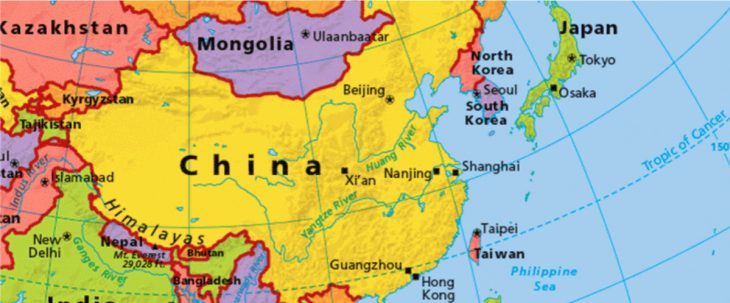Reports suggest impact will vary for retailers with increased Chinese tariffs
by August 6, 2019 3:42 pm 917 views

Moody’s analyst Charles O’Shea believes many major retailers have insulated themselves against the potential impacts of a 10% tariff against Chinese imports President Donald Trump has said will begin Sept. 1.
O’Shea said Walmart, Target, Costco, Amazon and Best Buy have diversified their supply chains and pre-purchased merchandise over recent quarters to lessen the impact in the near- and mid-term.
“Larger retailers have more pricing power with vendors to reduce the impact,” he said. “As far as their ability to deal with the end consumer, they also have more financial strength to absorb what could very well be a temporary pricing increase.”
O’Shea notes a 10% tariff could be impactful to some degree for most retailers, and the consumer cannot be thrilled about the prospect of higher prices. The move will raise the prices of textiles, clothing and shoes in the U.S., items that have been largely been excluded from already-imposed tariffs, according to O’Shea. The National Retail Federation has been critical of Trump’s trade war with China, calling the squabble a “flawed strategy.”
“These additional tariffs will only threaten U.S. jobs and raise costs for American families on everyday goods,” said David French, NRF senior vice president for government relations. “The tariffs imposed over the past year haven’t worked, and there’s no evidence another tax increase on American businesses and consumers will yield new results.”
O’Shea said the overall effect on individual apparel and footwear companies would depend on how quickly retailers can diversity sourcing, reduce costs, adjust product designs or obtain vendor and or government support.
Walmart has said the company will work hard to keep from raising prices for consumers, but ultimately that will depend on how long the trade war continues and how effective the company can be continuing to divert its supply chain away from China.
“Although companies may opt to increase prices, it will be difficult to do so,” O’Shea noted. “U.S. consumers, saddled with higher costs, would likely cut back on purchases, which would take a bite out of company revenue and profitability. Compounding this, U.S. companies doing business in China could take another hit from any countermeasures taken by China.”
Moody’s noted G-III Apparel Group generated about 86% of its revenue from the U.S. for the fiscal year ending January 2019, and 61.5% of its inventory came from China. While many suppliers of shoes and clothing are shifting production to Vietnam, Bangladesh and Indonesia, China remains the largest source of clothes sold in the U.S.
Retail analyst Michael Lassiter said tariffs will be a key topic covered in the coming retail earnings reports.
“We think messaging from retailers will be similar: they will say they are either working through it or containing the exposure,” Lassiter said. “Still, we expect the real impact will likely materialize over the holidays as some goods subject to tariffs on lists 1 through 3 experience price increases.”
Lassiter said Walmart, being a huge food retailer focused on basket sales, is somewhat cushioned, but Best Buy, selling big-ticket items, could have less ability to pass along the costs. Lassiter said deep discounters like Dollar Tree and Five Below remain in the crosshairs because of the low price points and exposure to Chinese goods.
“Many hardline, broadline and food retailers have messaged that the risk is ‘manageable,’ but we don’t think that gives much weight to cross-elasticity of demand as the prices on many consumer goods go up,” Lassiter noted.
UBS pegged Bed Bath & Beyond as the retailer with the most impact as the home outfitter gets 65% of its imported products from China. Fiscal 2019 earnings could be hit by as much as 13%, Lassiter noted. Office Depot is also in the direct line of fire as 50% of its imports come from China. The earnings impact could be 12% this year. Best Buy could see earnings dinged by 8% this year, as 70% of the company’s imports come from China.
Target could see earnings hit by 5% as 75% of its imports come from China. This compares to 40% of Walmart’s imports. UBS expects the new tariffs could pressure Walmart earnings by 2%. Costco gets 50% of its imports from China and there is a 3% negative impact on earnings, according to UBS.
Kroger gets just 20% of its imports from China, but UBS still expects a 2% threat to earnings from the new tariffs. Dollar General gets 60% of its imports from China, but UBS sees the earnings threat as just 1% this year.
ShopKick, a shopping rewards app, recently surveyed 30,799 users about shopping plans in light of tariffs on Chinese goods. The survey conducted in late June found nearly 40% of shoppers said they have already noticed increased costs resulting from the Trump administration’s trade policies.
According to the survey, 38% of shoppers anticipate seeing household costs increase by as much as $500 because of all the tariffs imposed by Trump’s trade policy. Also, 44% of respondents said they plan to curtail their shopping habits. About one-third of those surveyed are stocking up before the tariffs go into effect. Despite the prospect of higher prices, just one in four said they were planning to switch to American-made goods.
